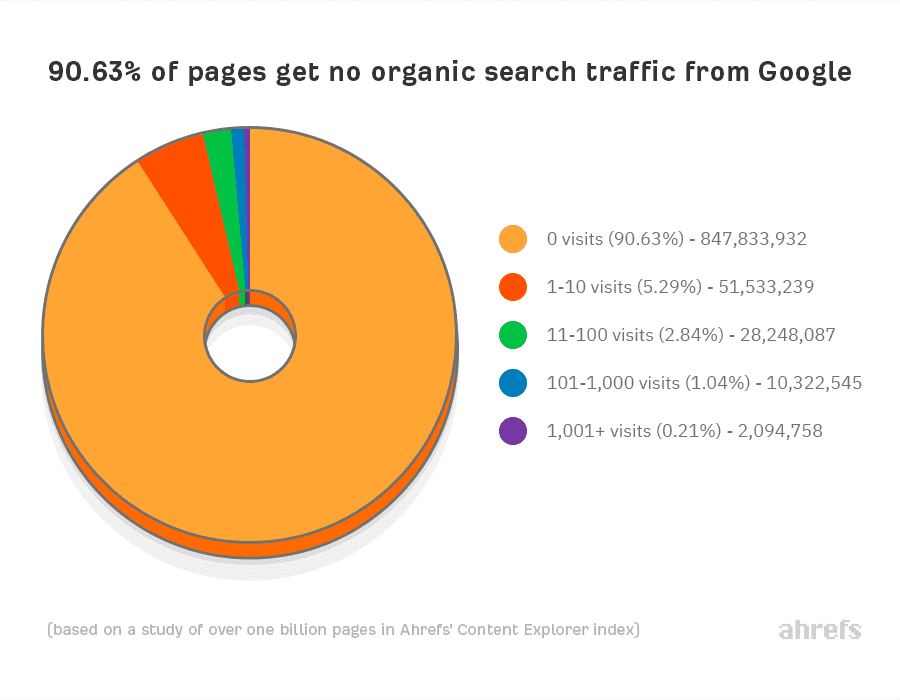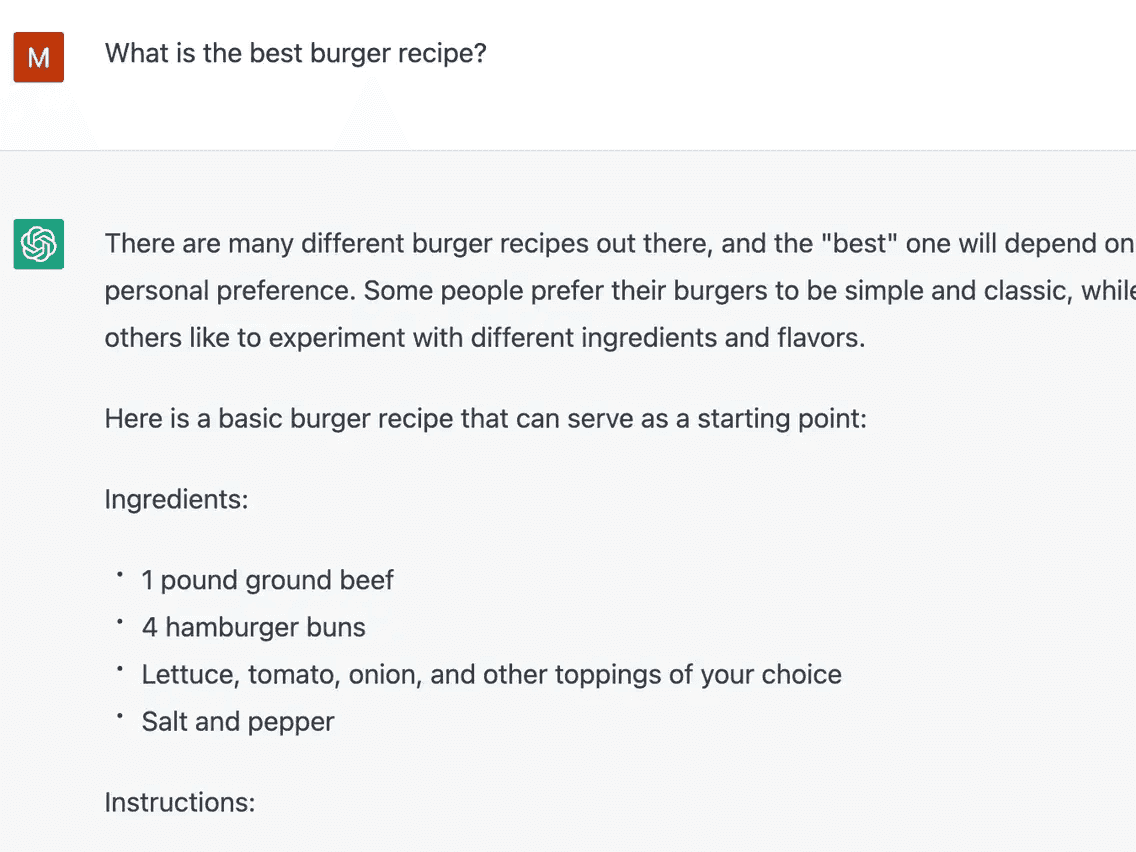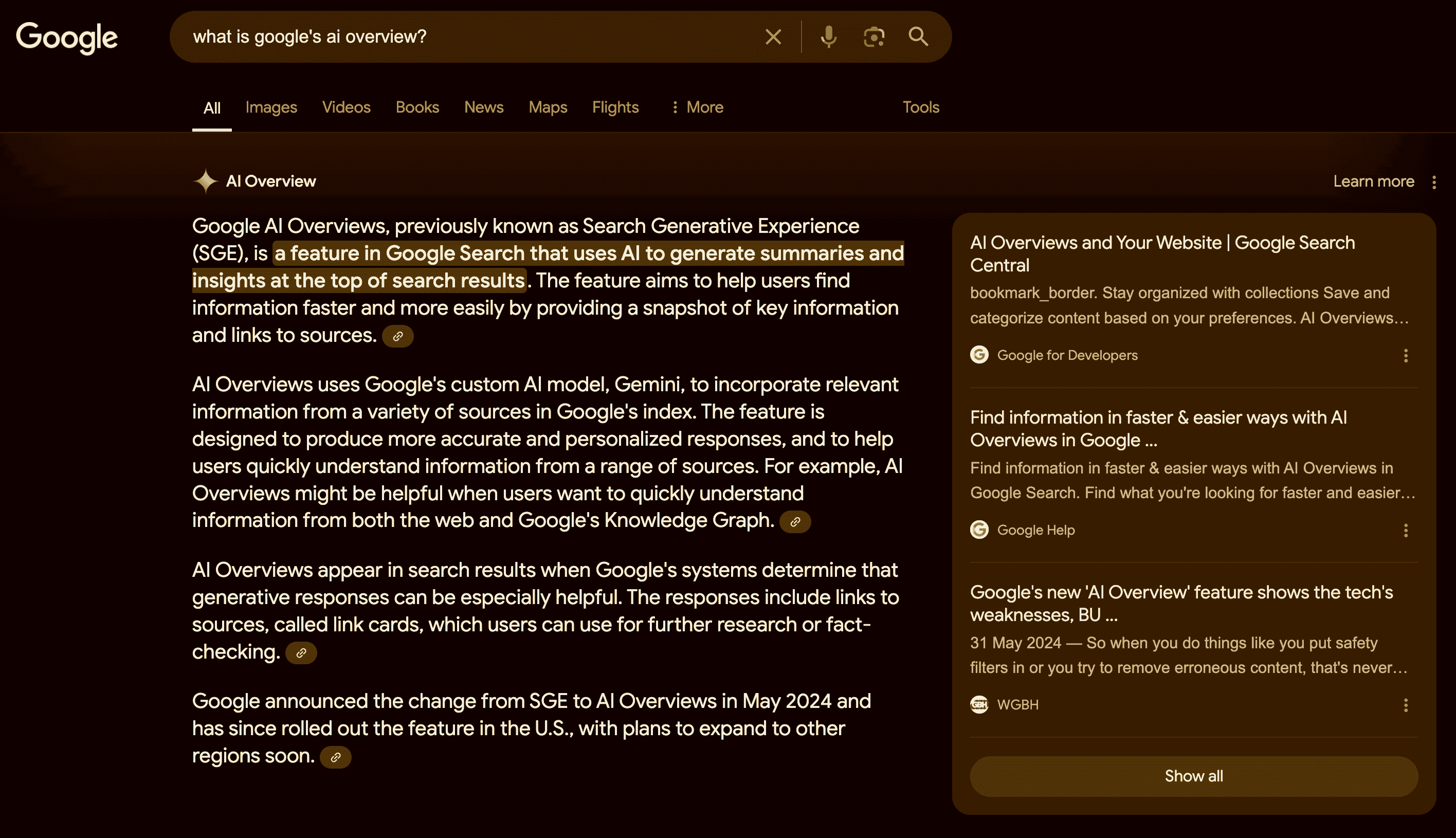Will ChatGPT Make SEO Irrelevant? A Deep Dive into the Future of Search
Last updated on Tuesday, October 31, 2023

In today's digital age, it's hard to imagine a world where Search Engine Optimization (SEO) doesn't reign supreme. For years, businesses and individuals alike have relied on optimizing their content to achieve those coveted top spots on search engine result pages. Enter ChatGPT and the rise of conversational AI, and we're faced with a burning question: Will ChatGPT make SEO irrelevant?
The Current State of SEO
To understand the potential impact of ChatGPT on SEO, we first need to grasp the current state of SEO. As of last update in 2022, approximately 93% of online experiences began with a search engine. With over 3.5 billion searches made on Google daily, it's evident why SEO is a multi-billion dollar industry.
Furthermore, organic search has been shown to drive 53% of all website traffic, making it a vital channel for businesses. The top result on Google has an average click-through rate (CTR) of 31.7%, and only 0.78% of searchers click on results from the second page. These statistics underscore the importance of ranking high on search engines.
Semantic Understanding in SEO
In the early days of SEO, it was all about keywords. Websites stuffed their content with relevant keywords, often at the expense of content quality, in hopes of ranking higher on search engines. The search algorithms primarily matched user queries with these keywords to deliver results.
However, as search engine algorithms became more sophisticated, there was a transition from mere keyword matching to understanding the intent behind user queries. This shift is known as semantic search.
Semantic search seeks to understand the context and intent behind a query rather than just focusing on the keywords. For instance, if someone searches for "apple," the search engine will consider whether the user is looking for information about the fruit, the tech company, or perhaps a related topic like apple pie recipes.
Context plays a pivotal role in semantic search. Search engines now consider various factors:
User's Search History: Previous searches can provide context to current queries.
Global Search Patterns: Trends and popular topics can influence search results.
Location: A search made in India might yield different results than the same search made in the USA, especially for location-dependent queries.

Enter ChatGPT, a conversational AI that doesn't just respond but understands. It's not bound by rigid scripts but thrives on context, much like semantic search.
Imagine combining the contextual prowess of ChatGPT with semantic SEO. Websites could employ AI-driven chat interfaces that understand user intent, guiding them through content that aligns with their semantic search queries. It's an interactive, responsive, and highly personalized approach to user engagement.
Some of the things this could enable are:
Dynamic Content Navigation: Instead of static menus or search bars, users could converse with ChatGPT-powered interfaces to navigate content based on their semantic search intent.
Enhanced User Experience: Merging semantic SEO with ChatGPT means users not only find what they're looking for but are also engaged in meaningful, context-aware conversations.
Real-time Content Optimization: ChatGPT could provide real-time feedback on user queries, allowing websites to optimize content dynamically based on evolving user intent.
Will ChatGPT Render SEO Obsolete?
ChatGPT, developed by OpenAI, is not your average chatbot. It can understand context, engage in human-like conversations, and provide well-informed responses. Gone are the days of scripted, rigid chatbot interactions. With ChatGPT, users feel like they're conversing with a knowledgeable human.
Given the capabilities of ChatGPT, it's tempting to think that traditional search engines might become obsolete. If users can get direct answers from conversational AI, why bother with search engines at all?

However, there are a few reasons why SEO will remain relevant:
Diverse Information Needs: Not all queries are best answered in a conversational format. For in-depth research, users might still prefer browsing articles, studies, and long-form content, which requires SEO.
Trust in Established Platforms: Search engines like Google have built significant trust over the years. Users are accustomed to using search engines for various needs, from shopping to academic research.
SEO is Evolving: SEO isn't static. It's already moving beyond just keyword optimization to user experience, page speed, mobile optimization, and more. As AI becomes more integrated into our digital experiences, SEO strategies will adapt accordingly.

A few years ago, when voice-activated assistants like Siri, Alexa, and Google Assistant started gaining traction, there was a buzz in the SEO community about the "death of traditional SEO." As more people began using voice commands for searches, the nature of search queries changed. They became more conversational. For instance, instead of typing "weather New York," people would ask, "What's the weather like in New York today?" SEO experts had to adapt and optimize for these conversational queries. This situation draws a parallel to the current rise of conversational AI like ChatGPT and its potential impact on search behaviors.
Integration of Chatbots like ChatGPT and Search Engines
Traditional search engines operate on queries. You type in a string of keywords, and the search engine spits out relevant results. However, with voice search gaining traction and users becoming more conversational in their queries, there's a shift from "typed keywords" to "spoken phrases."
Conversational Queries: Imagine not having to type out your search query but simply asking your browser, "Hey, can you show me easy recipes for chocolate chip cookies?" and getting a curated list of top-rated recipes.
Personalized Search: With ChatGPT's ability to remember past interactions (within the boundaries of data privacy), your search engine might remember that you prefer gluten-free recipes or that you recently searched for vegan desserts, tailoring the results accordingly.
Interactive Search Results: Instead of static links, you could get interactive snippets. For instance, asking about historical events might lead to a brief AI-generated summary, with options to delve deeper or ask related questions.
Staying Ahead of the Game with SEO
In an increasingly competitive digital arena, leveraging the power of SEO is more critical than ever. With algorithms evolving and user behavior constantly shifting, businesses must adapt and innovate to maintain a competitive edge.
Adopting Semantic SEO: As we've discussed, semantic understanding in SEO is the future. Embracing this approach ensures that your content resonates with user intent, not just keyword matches.
Integration with AI Tools: Platforms like ChatGPT can offer valuable insights into user behavior and intent. Integrating such tools can provide real-time feedback, allowing for dynamic content optimization.
Continuous Learning and Adaptation: SEO is not a one-time task. It requires continuous learning, testing, and adaptation. Stay updated with the latest trends, algorithm changes, and user behaviors.
Mobile-First Optimization: With a significant portion of users accessing content via mobile devices, ensuring your content is mobile-optimized is crucial. This isn't just about responsive design but also about speed and user experience.
User Experience as an SEO Factor: Beyond keywords and content, search engines are placing increasing importance on user experience. Factors like page load speed, site structure, and user engagement metrics play a crucial role in rankings.
Diversifying Content: It's essential to diversify the content, from long-form articles and blogs to videos, infographics, and podcasts. Different content formats cater to varied user preferences and can improve engagement.
Voice Search and Local SEO: With the increasing popularity of voice-activated assistants like Siri and Alexa, optimizing for voice search is becoming essential. Voice queries are typically longer and more conversational, requiring content to be optimized for natural language patterns. Moreover, many voice searches are local in nature, making local SEO vital. Businesses need to ensure their online listings are accurate and consistent across platforms to capitalize on local voice search queries.
Video SEO: The rise of platforms like YouTube and TikTok underscores the importance of video content. But creating videos is just one part of the equation. Optimizing them for search, with the right titles, descriptions, and tags, can significantly boost visibility and engagement. Moreover, embedding videos on websites can enhance dwell time, a metric that search engines consider when ranking pages.
Understanding User Journeys: Modern SEO is about understanding the user's journey. From awareness to consideration and decision, tailoring content to each stage of this journey can drive better engagement and conversions. Analyzing user behavior, leveraging analytics, and understanding touchpoints can provide insights into creating content that aligns with user intent at every stage.
Hiring the Best: One pivotal step towards ensuring SEO success is hiring top-tier SEO experts. These professionals possess the expertise and foresight to navigate the intricate maze of search engine algorithms, ensuring your brand remains prominent and relevant. If you are looking to hire SEO professionals for your business, use SEO interview questions to identify top candidates.
While tools and algorithms play a significant role, the human touch—provided by skilled SEO professionals—remains irreplaceable. Their expertise can guide businesses through the ever-evolving landscape, ensuring they stay ahead of the curve and continue to resonate with their target audience.
In Conclusion
While ChatGPT and similar conversational AI tools are undoubtedly revolutionizing the way we interact with digital platforms, it's premature to say they'll render SEO irrelevant. Instead, we're likely to see a symbiotic relationship where SEO and AI coexist, each enhancing the user's online experience in their unique ways.
What's certain is that the digital landscape is ever-evolving, and those who adapt will thrive. Whether you're an SEO expert or a business owner, it's essential to keep an eye on emerging technologies like ChatGPT and be ready to adapt your strategies accordingly.

Article by:
Elle Wong
Growth Marketer
Elle Wong is a growth marketer. Navigating the digital realm with finesse, she's passionate about scaling startups and turning ideas into impactful narratives.




